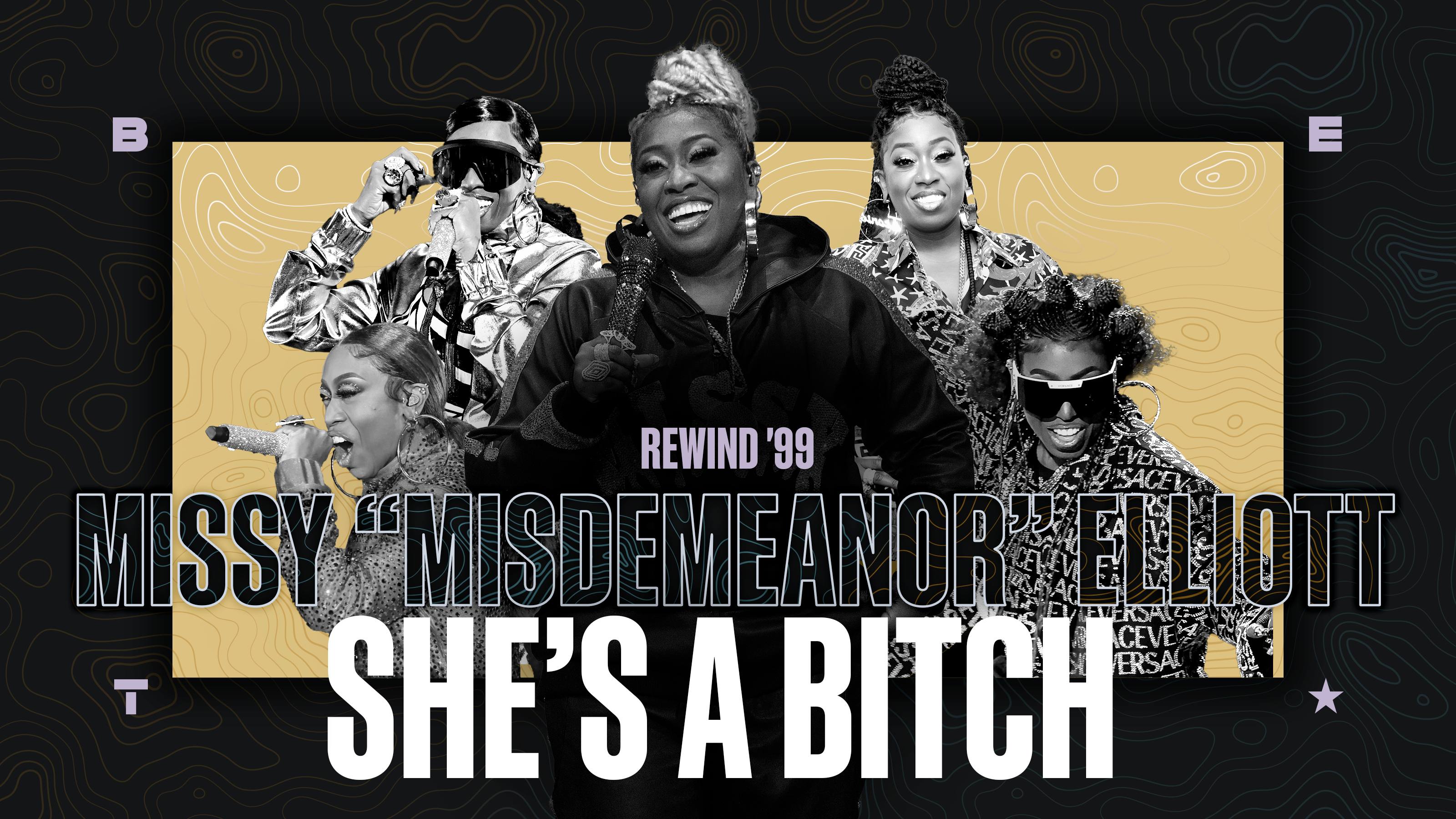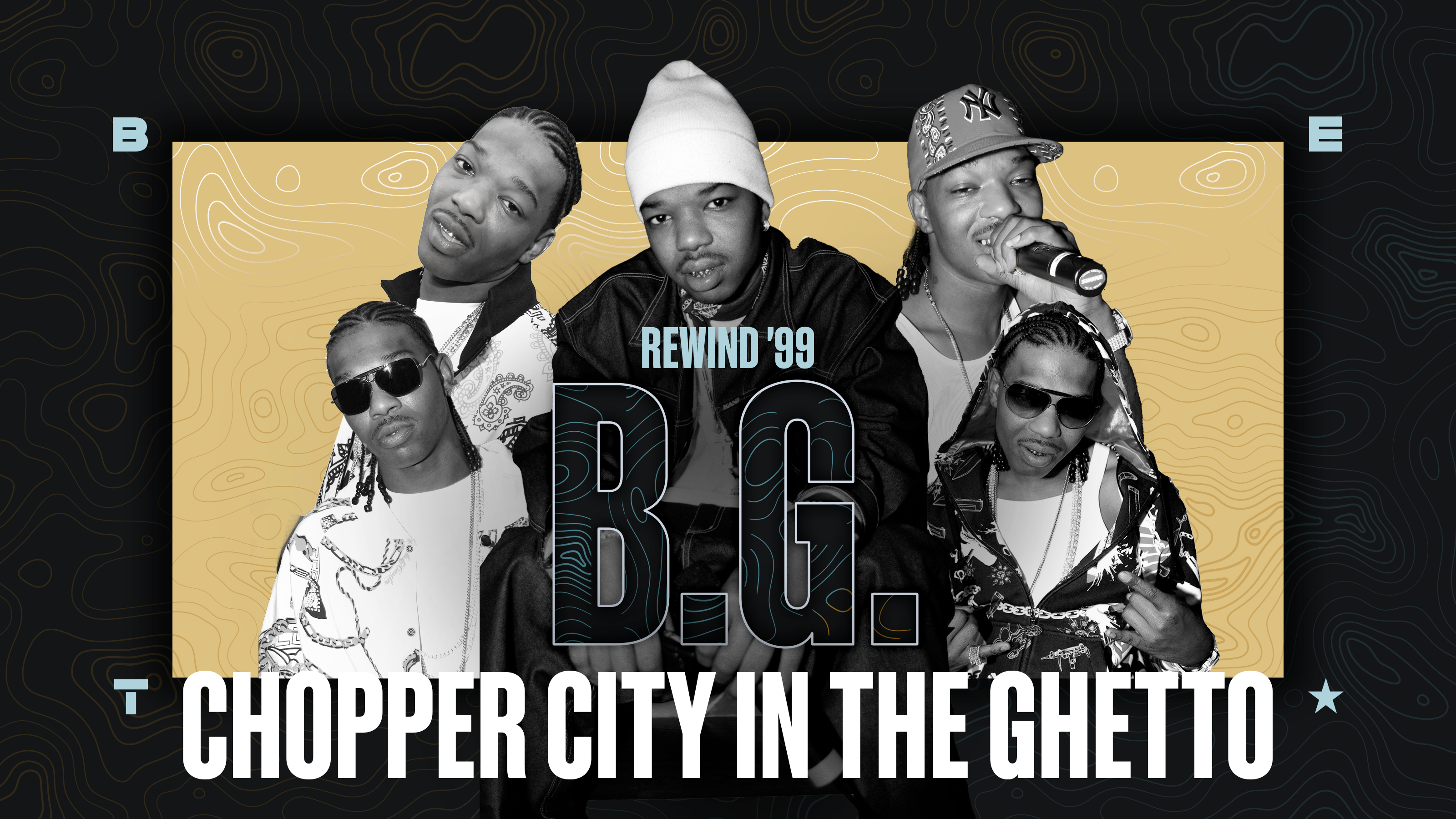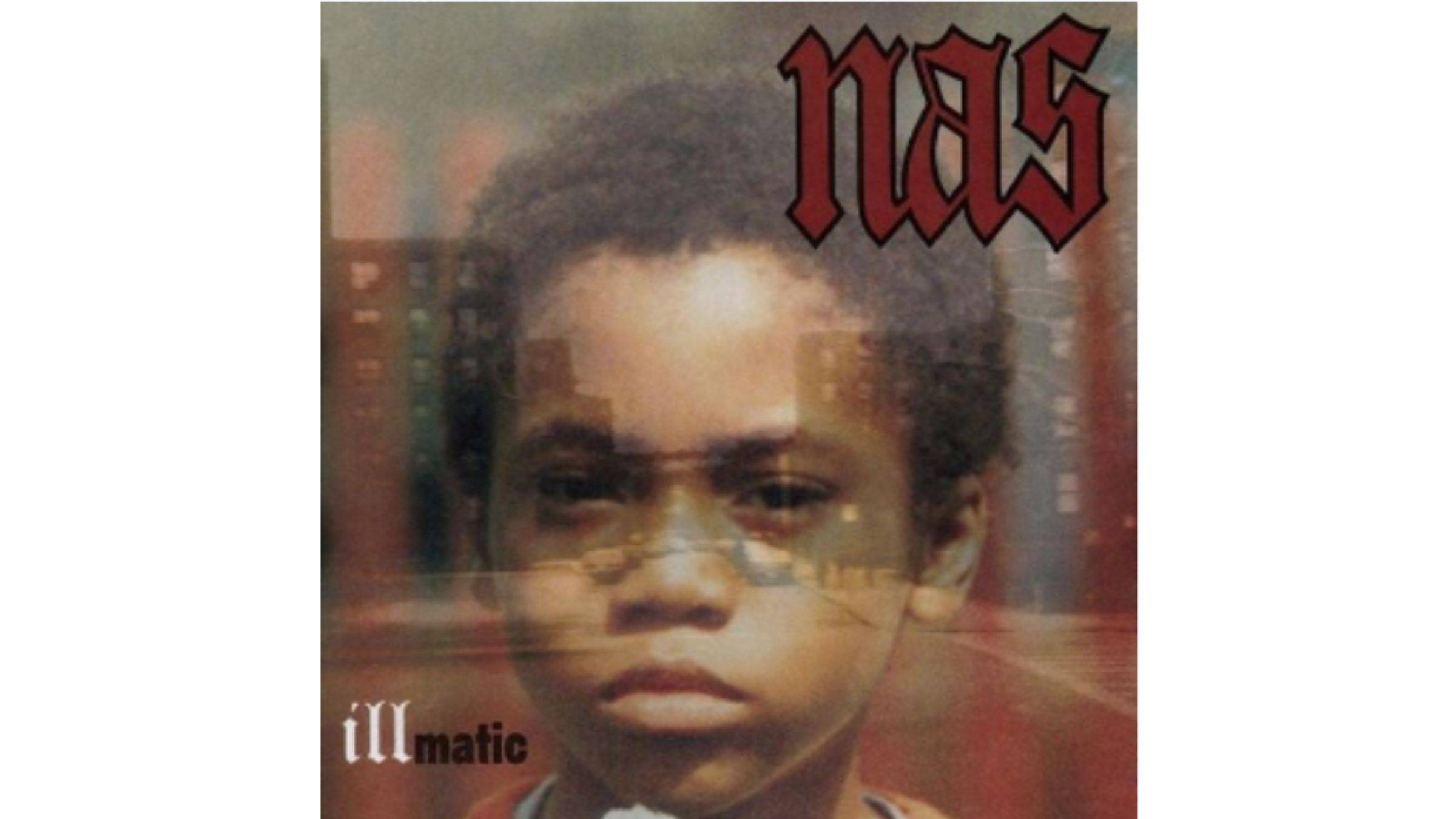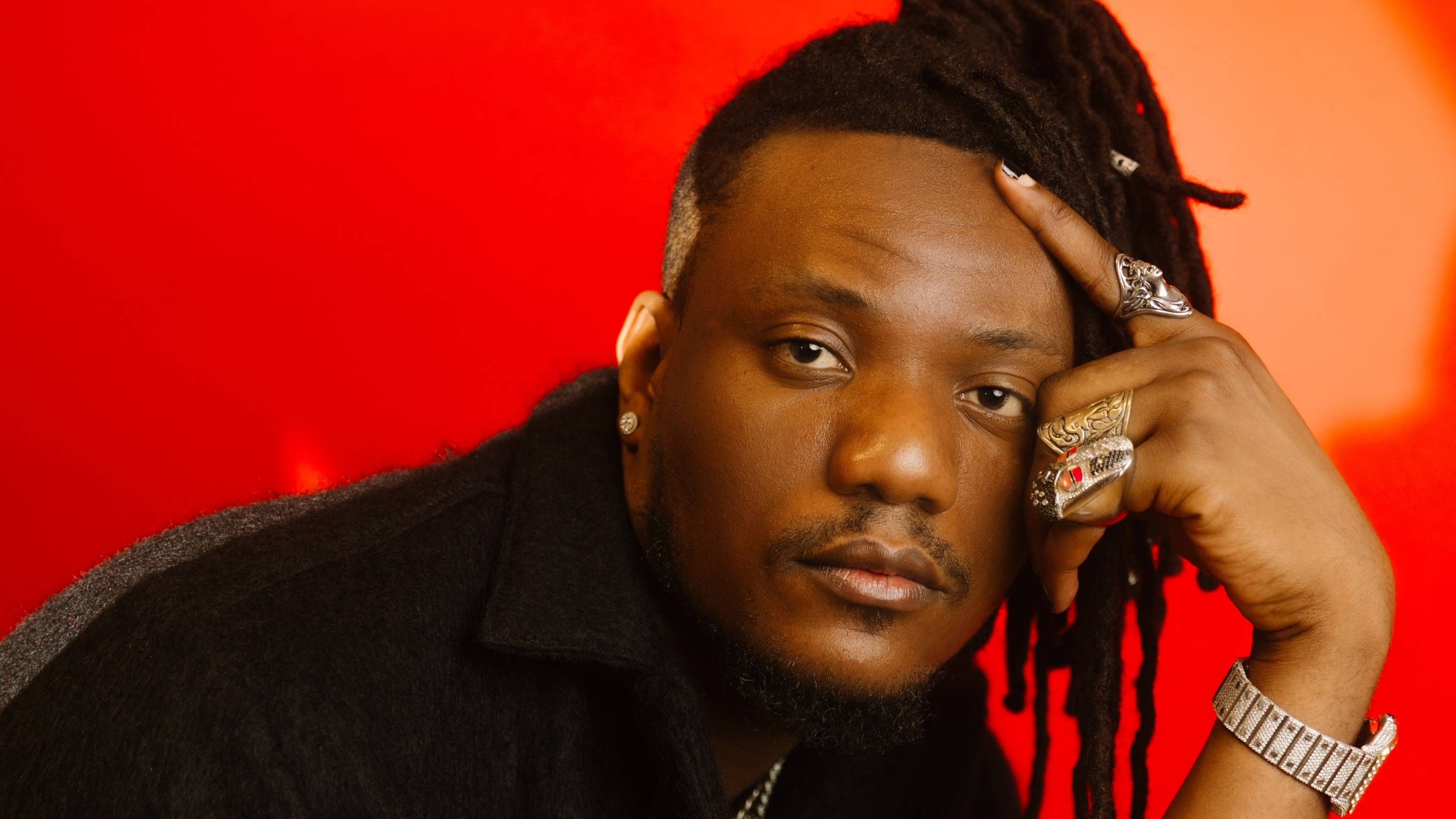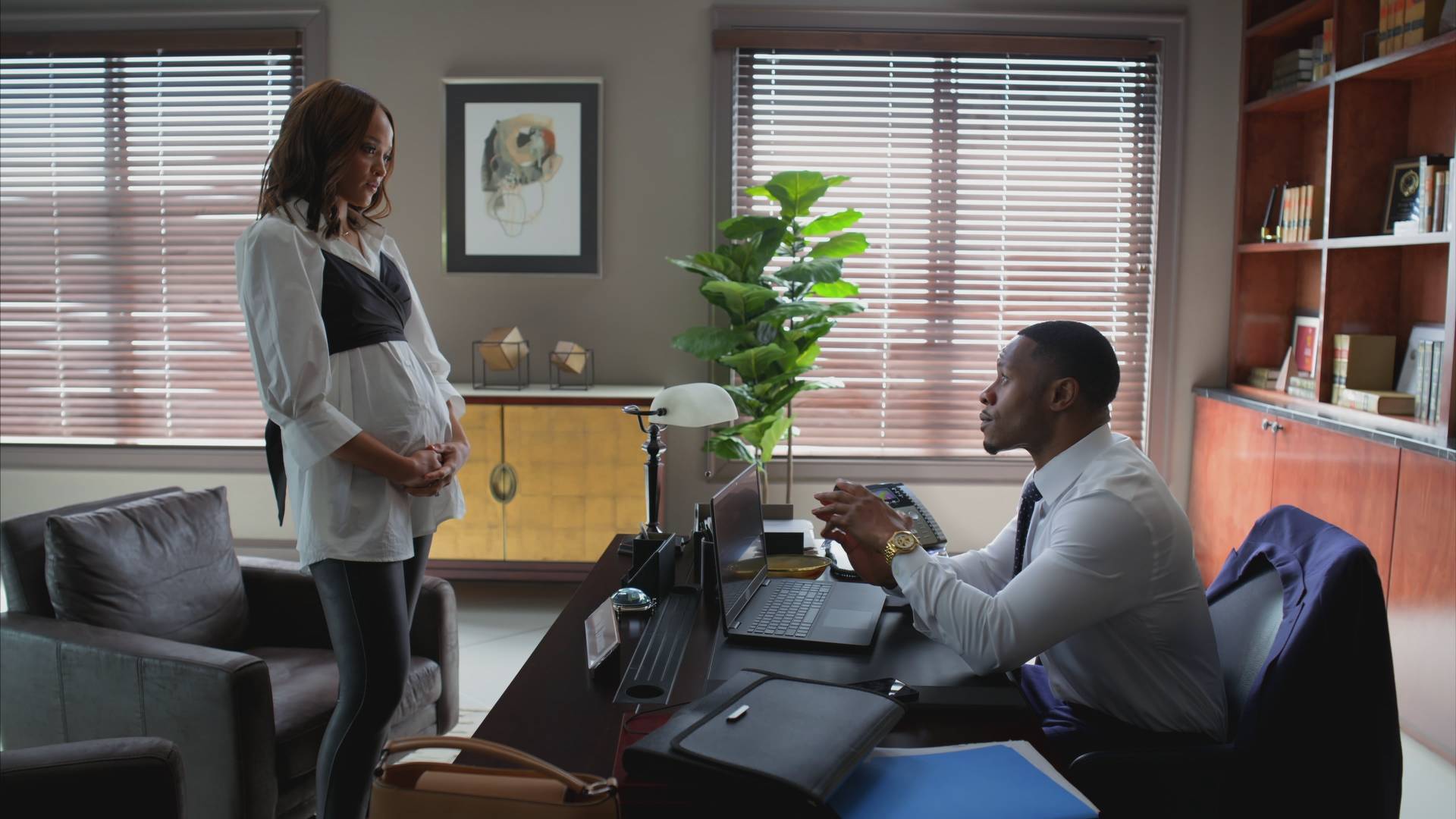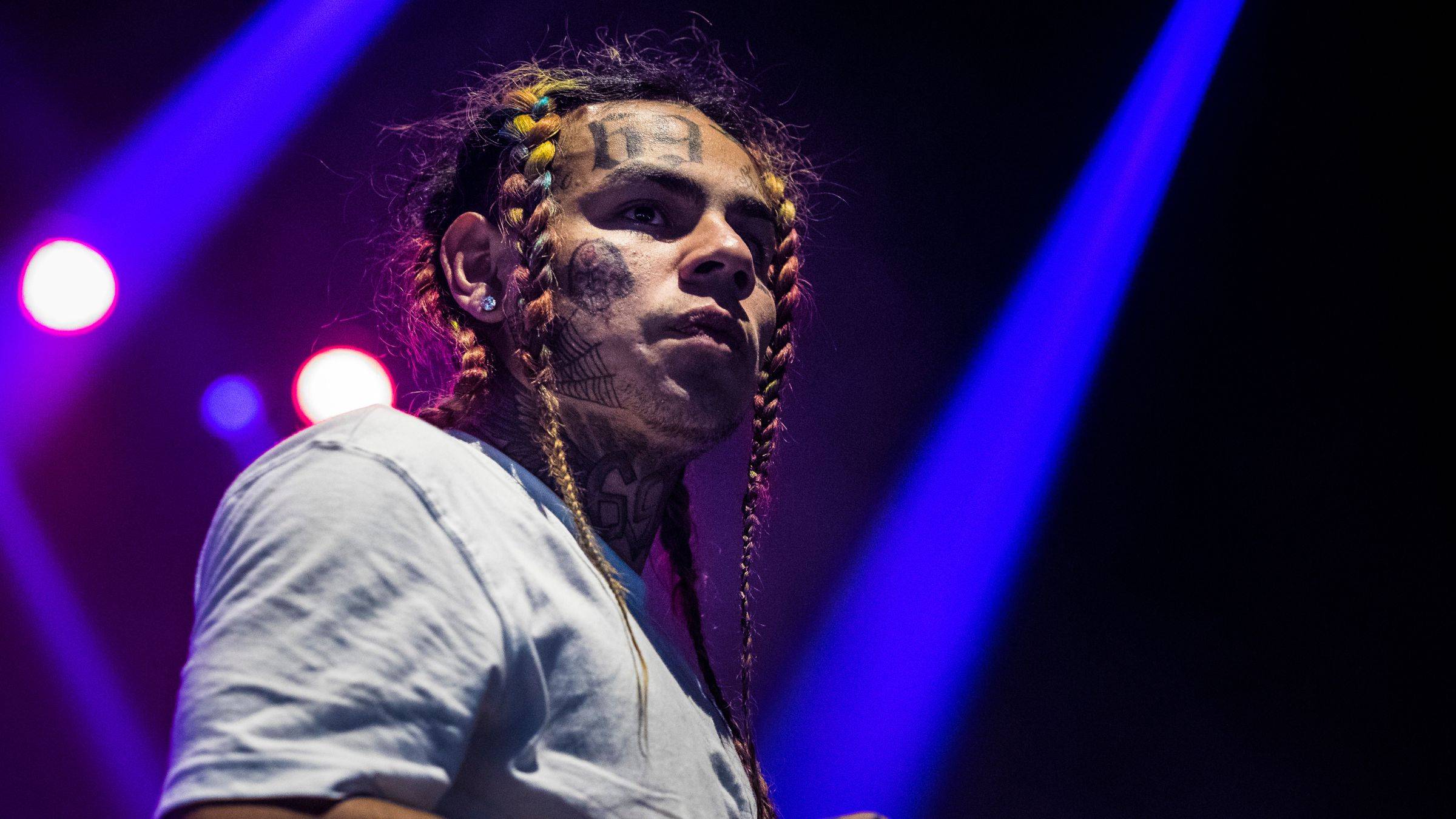'Bolden' Explores The Greatest Jazz Musician You've Never Heard Of
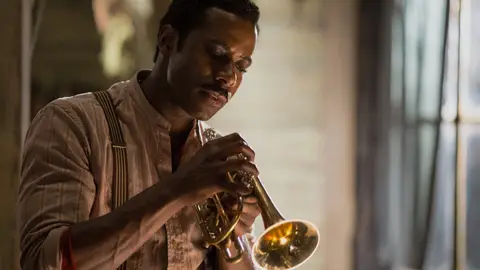
If you don’t know who Buddy Bolden is, it’s understandable. The visionary New Orleans jazz artist, who is credited for inventing the genre in the early 1900s, left little to no physical footprints for generations to discover and appreciate him. The new movie Bolden, written and directed by Dan Pritzker and scored by Wynton Marsalis, seeks to shed light on the life and legacy of this musical pioneer and historic artist.
Admittedly, the cast of Bolden did not know too much about Buddy Bolden themselves before working on the project (the biographical details of his life are few and recordings of his music are virtually nonexistent), but they were all educated, inspired and transformed by the experience. Yaya DaCosta, who plays Bolden’s wife, Nora, in the film, says she went from filming the Whitney movie to starting work on this film and appreciated the attention to detail and history that its director, Dan Pritzker, paid to the project.
Actor Reno Wilson, who plays jazz great Louis Armstrong in Bolden, said that he was already working on a live show about Louis Armstrong and had already started doing the voice and playing the trumpet when he was approached for the role. Erik LaRay Harvey plays Bolden’s unscrupulous and opportunistic manager, Buddy Bartley, in the film, but said that, as with all of his characters, his aim in making this movie was to come across as an African-American that is taken seriously. Robert Ri’chard, who plays musician George Baquet in the film, not only learned to play the clarinet, but studied 16-18 hours a day to prepare for his scenes.
In the lead role of Buddy Bolden, British actor Gary Carr continues to put Black actors hailing from the U.K. on the map, joining the ranks of Idris Elba and Daniel Kaluuya by vividly bringing Bolden to life.
BET sat down with Wilson, Harvey and DaCosta at NYC’s Roxy Hotel and Django Jazz Club to discuss this groundbreaking film that re-imagines the life of Buddy Bolden, and in telling his story offers a missing piece of Black history in particular and American music in general.
BET: Complete this sentence: Jazz is…
Yaya DaCosta: Jazz is soul.
Reno Wilson: Jazz is an original American art form – some would say, the only American art form.
Erik LaRay Harvey: Life, especially during this time. It’s absolute life. It brought the people out of a dull living – doldrums is what I say. It awakened them. Bolden’s music was just life, literally.
Robert Ri’chard: A collaboration. It’s a team sport. It’s a call and response. I love that there’s these stories that happen in these neighborhoods, specifically in New Orleans at this time, and the jazz music is really an expression of the pain – the things that they’re seeing, the things that they’re experiencing – in a beautiful, masterful art form.
What did you learn about the jazz legend Buddy Bolden that resonated the most with you?
DaCosta: Well I didn’t know anything about him before, so this was a huge learning opportunity for me, not just about the man, but about the art form of jazz and how it was birthed, and also just that time in the United States of America in general. It’s impossible to tell his story without really showcasing the setting and the backdrop of where he lived and how he was inspired. And so, I learned about that way that classical music was kind of married with more DNA-transmitted instincts in music and were passed down through generations and merged with these other kinds of instruments and jazz was born. And he was really the pioneer and inspired so many musicians whose names we do know, like Louis Armstrong, who referenced him as an inspiration.
Wilson: Well I would say through the lens of who Louis Armstrong’s perception of who Buddy Bolden was – that’s what affected me the most – it was his sound, the sound of his horn. Because for all intents and purposes it’s unrecorded. I think there might be a little cylinder or something out there of Buddy Bolden’s playing, but the way Louis Armstrong described it – really loud, really melodic. And women went crazy when [Bolden] played the horn. And when Louis was a little boy, Buddy Bolden was the man, and that’s one of the people that he looked up to. I just want to hear what his horn sounded like, you know? Nobody knows. That’s the kind of thing that plagues me about Buddy Bolden.
Harvey: I didn’t know anything about Bolden before the script came along -- the father of jazz? What? Wasn’t that Louis? And to find out that it went deeper than that, it was just shocking. But you know, not surprising, because a lot of our history is just so much deeper than we imagine. I was just very excited to be a part of something that I had no idea existed but that was totally true. And his life at the end was tragic, but thank God we got the genius before we got to the end.
Ri’chard: I think the thing that I learned most about Buddy Bolden is just there’s a lot of fear that can come from a system when someone’s rising up, and making people feel great, and aggregating an audience, and Buddy’s sound did that. They said that when Buddy was playing he was the loudest musician, and his trumpet could be heard for miles, and the fact that everyone was running to him and women would want to carry his trumpet, I love that, and that’s really what drew me to the story. And to get a chance to work with Wynton Marsalis, who is such a virtuoso, and his brother Delfeayo too, it was a pleasure.
Who is your favorite jazz artist – past or contemporary – and why?
Ri’chard: So my favorite jazz artist is Plas Johnson. He’s the saxophone player for “The Pink Panther,” and I remember that as a kid. My dad and I sort of just always loved and admired him, and then who doesn’t love Wynton? He’s amazing.
DaCosta: So I’m not just saying this because he was involved in the project, but Wynton Marsalis. The Marsalis family is connected with some of my extended family. Antoine Roney is a favorite of mine and [his] band tours the world. I grew up at his house with his kids hearing them rehearsing in the back. While my parents played a lot of jazz music and all kinds of music for me growing up, hearing it live, and in that house, and down the hall was really beautiful and impactful for me.
Wilson: Louis Armstrong. I’ve been playing the piano since I was four years old. My dad was a blues organist and he had a band here in New York City. My mom sang at the Metropolitan Opera and I’ve fallen asleep through Porgy and Bess many a time, but I grew up in a musical household, with the piano and drum set in the living room. But Louis Armstrong is definitely my favorite jazz musician. All I had known before I started studying about Louis was “Hello Dolly” and “What a Beautiful World” – that’s what we all know. But when I went back, Louis Armstrong in 1926 was Jay-Z, you know what I mean? Like, Jay-Z isn’t even big enough to describe who Louis Armstrong was in 1926. Louis Armstrong was like if Kool Herc, Afrika Bambaataa and Jay-Z had a baby – that was Louis Armstrong. He was the spark that created where we are today.
Harvey: Well, Wynton. I heard a lot of his music during the making of this movie, so I’m definitely a fan. And Dan [Pritzker] has introduced me to some of the music that he’s grown up with and loved, so I’ve got some Louis [Armstrong] of course on my playlist, so I’ve been introduced to jazz, which I wasn’t before. I was strictly an R&B guy, I was strictly a pop guy – some rap maybe, but jazz is a whole other level. So much sophistication goes on in the notes, and you have to listen.
Why is Bolden such an important movie, and why should someone go and see it?
DaCosta: It’s a gem! There’s so many gaps in history that were missed out on because of the dying of oral traditions and the emergence of things being written. Photography came about around that time, recorded music came about around that time, but Bolden was pre all of that, so today, growing up in a world of social media and Google and Wikipedia, accurate or not, there’s so much information out there. Young people are just so used to getting things really quickly and there’s a limit to that, to how far back you can go, and this is such a huge piece of history – everyone had heard about him back in the day, one of the first rock stars, but then people stopped talking about him because they didn’t have his records. So now, we can finally pay our respects to this king.
Wilson: Because nobody knows [the story], and he was the spark of jazz. He was the spark even past jazz – he was the spark for modern music as we know it today.
Harvey: I love my history. I’m always fascinated in my people and where we come from, what we’ve done, because it was just denied growing up. I never learned anything about the African-American experience in school – I’m talking elementary, high school, college even. They always want to study [others], but you never hear about these very important legendary figures in your own community. So I think if anything, if you just want to become an educated African-American in this country, then please go and see the movie and just who your people are, where they come from, and the music.
Ri’chard: This is like the original pop star, and I think that not only is it a history lesson, seeing just how somebody who was so talented but had some challenges in his life, how he overcame that, but inspired the entire sound that we hear across jazz, blues, rhythm and blues – even what hip-hop is today – that art form started with jazz.
